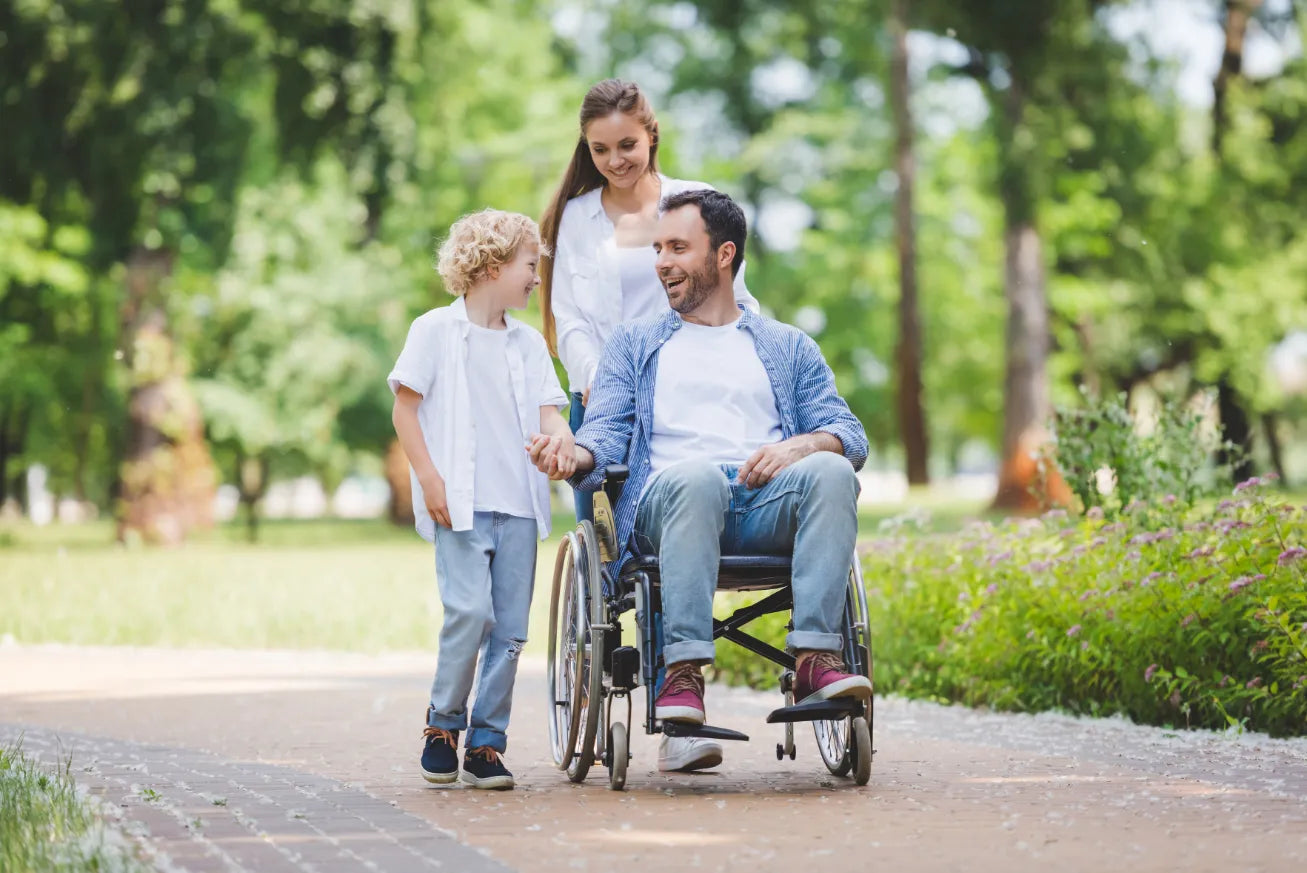
Being a caregiver for someone with ALS is one of the most selfless and challenging roles a person can take on. Whether you’re a spouse, family member, or friend, you’re stepping up in ways you never imagined—helping with daily tasks and offering emotional support through an unpredictable journey.
But here’s something you must remember: You can’t pour from an empty cup. Caregiving for someone with ALS isn’t just about meeting their needs—it’s also about preserving your own well-being so you can show up for them without burning out.
Let’s talk about how to care for your loved one while also caring for yourself.
1. Help Them Maintain Strength and Energy
ALS leads to muscle weakness and fatigue, but there are ways to help your loved one stay as strong as possible for as long as possible.
💡 How you can help:
✔ Encourage a nutrient-dense diet with healthy fats and proteins.
✔ Ensure they stay hydrated—dehydration can worsen fatigue and cramps.
✔ Help them take supplements that support energy production, like the Deanna Protocol, which provides key nutrients to fuel motor neurons, help muscle activation, and combat fatigue.
👉 Pro tip: Keeping a daily nutrition and energy log can help track what’s working and what’s not.
2. Open Communication
Remember that ALS does not affect the brain. Your loved one might be losing the ability to physically do things, but they are able to think for themselves and make decisions. It’s important that decisions are not made unilaterally because there are two people involved (your loved one and then you, the caregiver).
🔧 Tips to help open communication :
✔ Set up a weekly or monthly time to discuss each other’s needs.
✔ Be open about concerns.
✔ Be patient- this is a new journey for all parties involved so if a suggestion or idea is not well received give the parties involved time to wrap their heads around it.
3. Protect Your Own Physical and Mental Health
Caregiving is demanding—physically, mentally, and emotionally. If you’re exhausted, overwhelmed, or constantly running on empty, you won’t be able to give your best care.
😴 Ways to protect your well-being:
✔ Get enough sleep (your body and brain need it!).
✔ Eat well—skipping meals leads to exhaustion and brain fog.
✔ Move your body—even a short walk helps with stress.
✔ Take breaks—schedule time for yourself, even if it’s just 10 minutes.
💡 Most importantly: Ask for help when you need it. You don’t have to do this alone.
4. Create a Support System (and Actually Use It)
ALS caregiving can feel isolating, but you don’t have to do it all yourself. Lean on others.
🤝 Where to find support:
✔ Join an ALS caregiver support group (online or in-person) or attend individual therapy sessions with a therapist.
✔ Ask friends and family for specific help (meals, errands, respite care).
✔ Connect with medical professionals for guidance.
You deserve support, too. It’s okay to delegate tasks and take time for yourself—doing so will make you a better caregiver in the long run.
5. Find Meaning in the Journey
Being a caregiver for someone with ALS isn’t just about tasks—it’s about love, connection, and presence. While the journey is hard, there are still moments of laughter, joy, and deep meaning.
💛 Ways to cherish the time together:
✔ Share stories and memories.
✔ Do activities they love (with modifications as needed).
✔ Celebrate small victories.
✔ Be fully present in the moment.
✔ Don’t forget to laugh.
You are making a difference. Even on the hard days, your love and support mean everything to the person you’re caring for.
Final Thoughts: You Matter, Too
Caring for someone with ALS isn’t easy, but you don’t have to navigate it alone. By supporting their health, open communication, protecting your own well-being, and building a support network, you can be there for them while also taking care of yourself.
And remember—small actions make a big impact. Whether it’s helping them stay nourished, making sure they take the right supplements (like the Deanna Protocol to support their energy), or simply sitting beside them and holding their hand—you are doing enough.
👉 Looking for more ways to support your loved one? Learn how the Deanna Protocol can help here.





